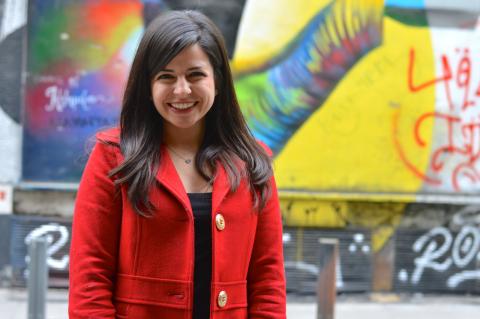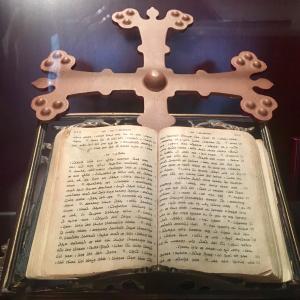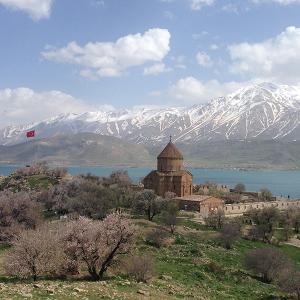
Tania Karas writes for the Religious News Service and is a freelance journalist covering refugees, global migration, and human rights in Eastern Europe and the Middle East. For the 2015-16 academic year, she was a U.S. Fulbright Fellow in Greece covering the refugee crisis amid the country's economic crisis.
Posts By This Author
Trump Says He Wants to Prioritize Christian Refugees. Middle Eastern Christians in the U.S. Respond.
President Donald Trump’s recent statements that he would prioritize Christian refugees coming to the United States set up one potential constitutional challenge to his Jan. 27 executive order temporarily barring citizens of seven Muslim-majority countries and cutting the U.S. refugee admissions program in half. But it also rang hollow to some Middle Eastern Christians living in the U.S.. Some told Sojourners they find the travel ban's discrimination — and Trump's assertion that it's meant to keep out Muslims — contrary to Christian teachings.
On Eve of Anniversary, Turkey’s ‘Cultural Genocide’ of Armenian History Is Ongoing
This tiny Kurdish village outside the city of Van in Turkey’s southeast is home to the ruins of a once-famous 11th-century Armenian Christian monastery.
Known to Armenians as Varagavank, it thrived as a place of worship until Turkish forces looted it and murdered parishioners in the mass killing sprees of 1915.
Today, the roof is collapsing. Toppled stone columns lie nearby. And with no signage, there is no acknowledgment it was once a celebrated church for Armenians.
Varagavank is one of hundreds of disappearing physical reminders of a community whose history in present-day Turkey goes back more than 2,000 years. Over the past century, the Turkish government — in writing its own narrative of what Armenians call genocide — has destroyed many Armenian churches, homes, schools, and cemeteries, or allowed them to fall into ruins. They are sites other countries might consider valuable antiquities.
“The term we use for this is ‘cultural genocide,’” said Vahram Ter-Matevosyan, a historian at the American University of Armenia in Yerevan, Armenia’s capital.
“We consider what is happening to many churches a continuation of the genocide which started at the beginning of the 20th century. It is painful, utterly painful.”
Historians and visitors have noted holes in the ground of Armenian historical sites throughout Turkey, evidence of widespread rumors that Armenians buried their riches before fleeing.
Hermine Sayan, an Armenian who lives in Istanbul, said her heart was broken when she visited what remained of a destroyed church in Malatya, a city in eastern Turkey, a few years ago.
“We stood together saying our prayers, and we were crying,” said Sayan, whose grandparents survived the genocide.
On April 24, Armenians worldwide will commemorate 100 years since almost 1.5 million of their ancestors died in the last days of the Ottoman Empire, in massacres, by starvation or during forced death marches into the Syrian desert.

